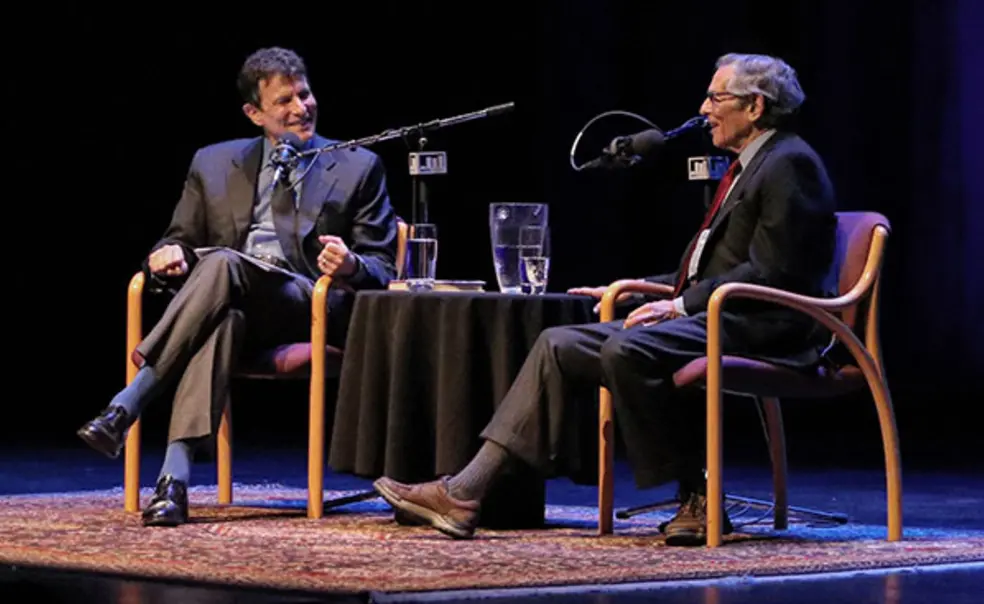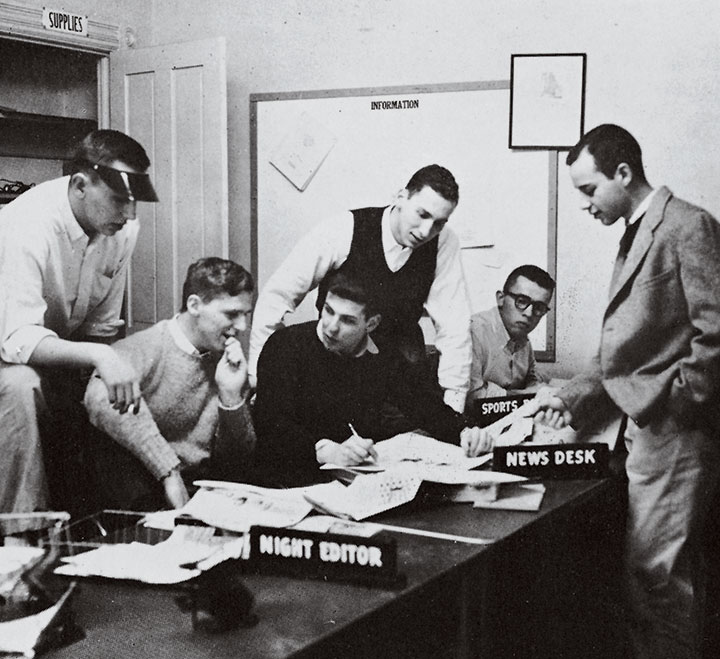LBJ Biographer Caro ’57 Joins Remnick ’81 for Interview at McCarter
The author’s research method: ‘Turn every page’
Robert Caro ’57 majored in English, but he understands math. And actuarial math suggests that the 83-year-old Pulitzer Prize-winning author of The Power Broker and the multi-volume The Years of Lyndon Johnson should be working as hard as possible to finish the final Johnson volume while he still can.
Instead, Caro has taken what he insists is a brief detour to write Working, which is not so much a memoir as a discussion of the lessons he has learned over six decades on how to research, investigate, and write. Caro discussed some of those lessons at McCarter Theatre May 7 with New Yorker editor David Remnick ’81 for a taping of “The New Yorker Radio Hour.”
“Wherever I thought I was going was not where I ended up going,” Caro said of his career, telling several anecdotes about his start as a reporter for the New Brunswick Daily Home News and Newsday.
Writing about government officials, particularly Robert Moses, the New York City parks commissioner, proved to Caro that he understood much less about politics than he thought he did. While working at Newsday, he wrote several stories about a bridge Moses proposed to build across Long Island Sound. Caro was convinced that the project was dead until a friend in Albany called to tell him that Moses had been lobbying state officials and that the project was now very much alive.
Driving home that night, Caro puzzled how someone who had never been elected to anything could bend politicians to his will. “I had no idea how [Moses] got that power,” Caro said, “and I realized that neither does anybody else.” He decided to write The Power Broker to learn what he did not know.
Read More: The Nut in the Gallery, PAW’s 2002 feature on Robert Caro ’57
Not everyone likes him, Caro acknowledged. Moses tried to keep friends and associates from talking to Caro when he started working on his book, only to relent when he realized that Caro would not be deterred. But after granting several long interviews, Moses stopped returning calls when Caro asked too many probing questions.
Similarly, Caro admitted, even friendly subjects grow exasperated with his relentless probing for details — little bits of information he will then use to paint a scene in his books. “What would I see?” Caro asks again and again. Eventually, the subject’s memory opens up and those nuggets emerge.
A lesson from one of his first editors still informs Caro’s work and fuels him as he plows through the 45 million pages at the LBJ Presidential Library in Austin: “Turn every page. Never assume anything. Turn every goddam page.”













No responses yet